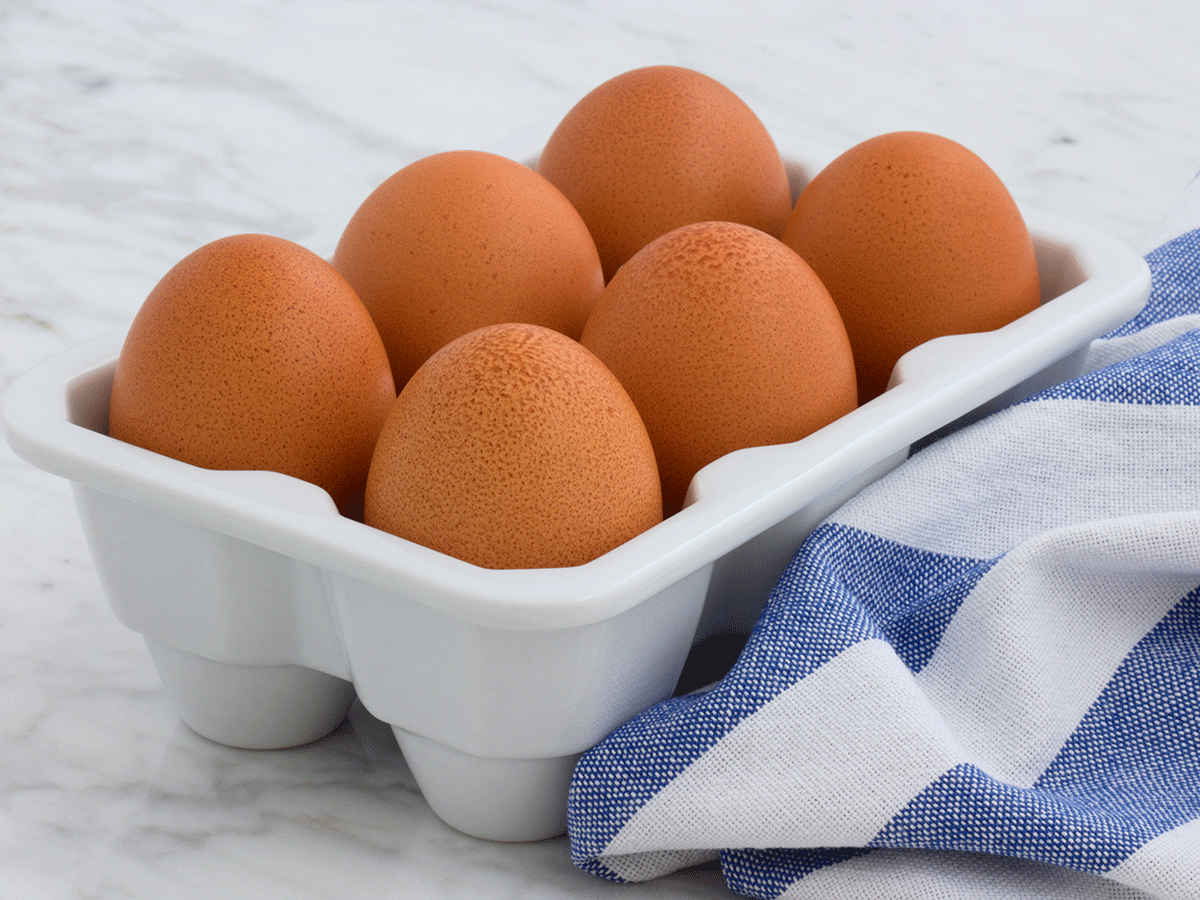Cage-Free vs. Free-Range Eggs: What’s the Difference?

If you've ever been perplexed by the egg choices at the grocery store, you're in luck. We cracked into the henhouse to unscramble the mystery.
The egg section at the grocery store is a lot more confusing than it should be. Not only are there eggs of different sizes and colours available, as well as regular and organic options, but there are also different notations on the cartons about the way the eggs have been produced—and some of them sound awfully similar. Case in point: cage-free eggs and free-range eggs. Since both labels contain the word “free,” it seems like the hens in both situations are clucking around the fields—but is this actually the case? Here’s what you need to know when shopping for eggs in Canada.
(Psst: Nutritionists never buy these organic foods.)
Cage-free
According to the David Suzuki Foundation, cage-free simply means hens are not kept in battery cages, which are “small wire cubes housing five to seven birds each, beaks cut (to control damage from pecking their cage mates), stacked row upon row upon row in large, windowless barns.” Unfortunately, this still doesn’t mean the hens have access to the outdoors and there are no regulations around what they are fed.
Free-range
Free-range eggs mean, according to Egg Farmers of Canada, hens can roam the barn floor and, if whether permits, outside. Again, this doesn’t mean the hens’ food is regulated.
Which one is better?
Go with organic. According to the David Suzuki Foundation, “Hens that produce certified organic eggs benefit from the highest welfare standards. For example, the SPCA Certified label assures eggs come from farms that have passed their animal welfare standards. Certified organic labels often require the use of organic feed without growth hormones or antibiotics, too.”
But whichever type of eggs you choose, know that in Canada, the egg farming industry is phasing out conventional housing (another term for battery cages). What’s more, egg farmers are located in every province (and even in Northwest Territories), so local, fresh eggs are available across the country.
Now that you’ve got the lowdown on your egg options, what should you do with the ones you choose? Try making these Western Sheet Pan Eggs.




